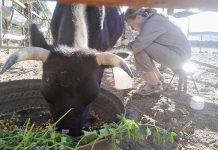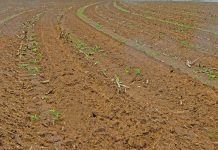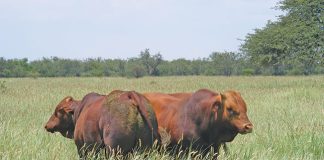
The World Organisation for Animal Health (WOAH, previously known as the OIE) held its 91st General Session of the World Assembly of Delegates in May in Paris, France.
The five-day event marked the WOAH’s centenary, and Dr Emmanuelle Soubeyran was also elected as the organisation’s new director-general for the period 2024 to 2029.
In addition, discussions were held on collaborative approaches to shaping a sustainable future for global animal health and welfare.
As the animal health and production sectors came together, they were presented with a chance to consider current One Health challenges that impact livestock and, by extension, human health, food security, rural livelihoods and the environment.
Over 1 100 participants from 166 countries and territories attended the event in person, including South Africans Marzanne Roets, Dr Gideon Brückner, and Adrian Todd of the National Animal Health Forum.
The diseases of immense impact on most countries include highly pathogenic avian influenza (HPAI), foot-and-mouth disease (FMD), African swine fever (AFS), and all vector-borne diseases, including zoonotic diseases. These topics were discussed in depth by the WOAH scientific commission.
Foot-and-mouth disease
A total of 46 countries/territories reported the presence of FMD in 2023 or early 2024. The detection of new serotypes in countries is a cause for concern, as it requires rapid adaptation of control strategies. Vaccines need to be adapted to the circulating disease strains, which therefore require constant monitoring.
READ RPO advises on FMD outbreak control and biosecurity measures
The rapid spread of serotype SAT 2 to new areas in early 2023 has attracted the attention of the international community. During the period under review, SAT 2 was reported for more than 10 years in parts of East Africa, Central Africa, North Africa and the Middle East.
WOAH recommends that neighbouring countries and trading partners ensure appropriate surveillance and prevention.
Vector-borne diseases
Of the 90 diseases of terrestrial animals currently listed by WOAH, almost one-third are vector-borne (entirely or for which vectors play an important role), some of which showed significant evolution in 2023 and early 2024.
Avian influenza
To limit losses due to HPAI, vaccination is being considered by some countries. As described in the relevant WOAH standards, vaccination against HPAI could be considered as part of a broader disease prevention and control strategy.
READ Two important poultry diseases you need to know about
In December 2023, the WOAH published a policy brief on the use of vaccination. The effectiveness of vaccinating poultry against HPAI depends on the use of appropriate vaccines at the recommended doses and age.
African swine fever
Given the current global presence and spread of ASF and its complex epidemiology, controlling the disease is becoming increasingly challenging. Vaccination can be an effective tool for disease control, but there has long been a lack of effective vaccines to control ASF.
An important way to reduce the impact and spread of ASF at country level is the implementation of zoning and compartmentalisation.
Phone the RPO on 012 349 1102/3, email [email protected] or visit rpo.co.za.












